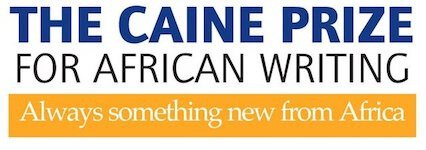The five-writer shortlist for the 2016 Caine Prize for African Writing has been announced by Chair of judges, writer and academic, Delia Jarrett-Macauley. The 2016 shortlist includes a former Caine Prize winner and a former regional winner of the Commonwealth Short Story Prize.
Delia Jarrett-Macauley described the shortlist as, ‘an engrossing, well-crafted and dauntless pack of stories.’
‘The high standard of the entries was clear throughout and particularly noteworthy was the increasing number of fantasy fictions [with] the sci-fi trend resonating in several excellent stories. My fellow judges commented on the pleasure of reading the stories, the gift of being exposed to the exciting short fictions being produced by African writers today and the general shift away from politics towards more intimate subjects – though recent topics such as the Ebola crisis were being wrestled with.’
She added, ‘It was inspiring to note the amount of risk-taking in both subject matter and style, wild or lyrical voices matching the tempered measured prose writers, and stories tackling uneasy topics, ranging from an unsettling, unreliable narrator’s tale of airport scrutiny, to a science-fictional approach towards the measurement of grief, a young child’s coming to grips with family dysfunction, the big drama of rivalling siblings and the silent, numbing effects of loss.’
‘The panel is proud to have shortlisted writers from across the continent, finding stories that are compelling, well-crafted and thought-provoking.’
The 2016 shortlist comprises:
Abdul Adan (Somalia/Kenya) for ‘The Lifebloom Gift’ published in The Gonjon Pin and Other Stories: The Caine Prize for African Writing 2014 (New Internationalist, United Kingdom, 2014)
Lesley Nneka Arimah (Nigeria) for ‘What it Means When a Man Falls From the Sky’ published in Catapult (Catapult, USA, 2015)
Read ‘What it Means When a Man Falls From the Sky’
Tope Folarin (Nigeria) for ‘Genesis’ published in Callaloo (Johns Hopkins University Press, USA, 2014)
Folarin won the 2013 Caine Prize for African Writing
Bongani Kona (Zimbabwe) for ‘At Your Requiem’ published in Incredible Journey: Stories That Move You (Burnet Media, South Africa, 2015)
Lidudumalingani (South Africa) for ‘Memories We Lost’ published in Incredible Journey: Stories That Move You (Burnet Media, South Africa, 2015)
The full panel of judges, joining Delia Jarrett-Macauley, includes acclaimed film, television and theatre actor, Adjoa Andoh; writer and founding member of the Nairobi-based writers’ collective, Storymoja, and founder of the Storymoja Festival, Muthoni Garland; Associate Professor and Director of African American Studies at Georgetown University, Washington DC, Dr Robert J Patterson; and South Africanwriter and 2006 Caine Prize winner, Mary Watson.
The winner of the £10,000 prize will be announced at an award ceremony and dinner at the Weston Library, Bodleian Libraries, Oxford, on Monday 4 July. Each shortlisted writer will also receive £500.
Each of these stories will be published in New Internationalist’s Caine Prize 2016 Anthology in July and through co-publishers across Africa, who receive a print-ready PDF free of charge from New Internationalist.
Notes to Editors
About the Caine Prize
The Caine Prize, awarded annually for African creative writing, is named after the late Sir Michael Caine, former Chairman of Booker plc and Chairman of the Booker Prize management committee for nearly 25 years. The Prize is awarded for a short story by an African writer published in English (indicative length 3,000 to 10,000 words). An African writer is taken to mean someone who was born in Africa, or who is a national of an African country, or who has a parent who is African by birth or nationality.
The African winners of the Nobel Prize for Literature, Wole Soyinka and J M Coetzee, are Patrons of The Caine Prize. Baroness Nicholson of Winterbourne is President of the Council, Ben Okri OBE is Vice President, Jonathan Taylor CBE is the Chairman, Ellah Wakatama Allfrey OBE is the Deputy Chairperson and Dr Lizzy Attree is the Director.
